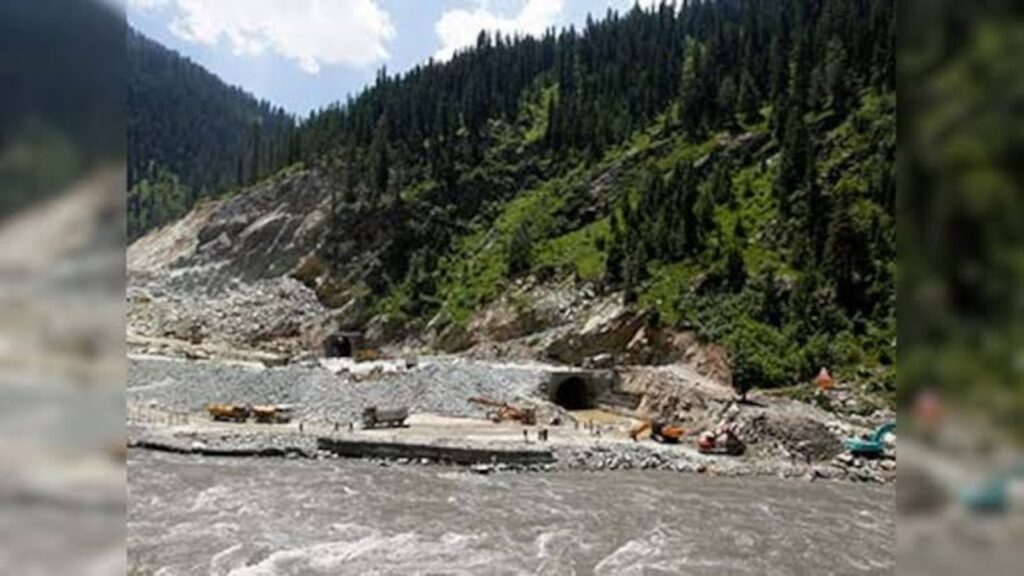
Indus Waters Treaty: After the major terrorist attack in Pahalgam, Jammu and Kashmir, the Indian government has taken key decisions to give a befitting reply to Pakistan. The most consequential step taken by the government is the decision to suspend the Indus Water Treaty. This decision is going to have a profound impact on Pakistan, because Pakistan used to benefit a lot from this treaty.
The Indian government’s decision to stop the Indus Agreement is a calculated diplomatic move. Pakistan may now have to face a lot of problems and grave shortage of water. So let us now know about the Indus Waters Treaty in detail.
The Indus Waters Treaty was executed to meet the water needs of both the countries after the India-Pakistan partition. On 19 September 1960, the then Prime Minister Jawaharlal Nehru and Pakistan President Ayub Khan signed this agreement. Under this, rules were fixed for the use of water of six rivers Beas, Ravi, Sutlej, Indus, Chenab and Jhelum.
Under this agreement, Pakistan gets 80 percent water of three western rivers Chenab, Jhelum and Indus. On the other hand, India gets 80 percent water of Sutlej, Beas and Ravi rivers.
After independence, India and Pakistan have fought many wars. But, this agreement always remained in force. According to this agreement, no country can unilaterally break this treaty nor change the rules. India and Pakistan will have to change this treaty together and strike a new agreement. Despite continuous terrorist activities, India has maintained this agreement. But, after the Pahalgam attack, the Indian government has taken this big step.
The Indus Water Treaty was signed between India and Pakistan after a long mediation by the World Bank. Before the implementation of this treaty, on 1 April 1948, India had stopped the water of two major canals, due to which 17 lakh acres of land in Pakistani Punjab was badly affected.
In such a situation, if India stops the water of these rivers, it will cause chaos in Pakistan. However, Pakistan will have the right to appeal against India’s decision in the World Bank.
पहलगाम आतंकी हमला: सिंधु जल संधि को निलंबित करने के क्या परिणाम होंगे? इसका पाकिस्तान पर गहरा असर क्यों पड़ेगा?
जम्मू-कश्मीर के पहलगाम में हाल ही में हुए आतंकी हमले के बाद सिंधु जल संधि चर्चा में आ गई है। भारत सरकार ने पाकिस्तान के खिलाफ कड़ा रुख अपनाया है, जिसमें सिंधु जल संधि को रोकने का अहम फैसला भी शामिल है। इस कदम से पाकिस्तान पर गहरा असर पड़ने की उम्मीद है, जिसे इस समझौते से ऐतिहासिक रूप से फायदा मिला है।
प्रधानमंत्री नरेंद्र मोदी ने पाकिस्तान को करारा जवाब देते हुए संकेत दिया कि सिंधु समझौते को खत्म करना एक कूटनीतिक हमला है, जिससे पाकिस्तान के लिए पानी से जुड़ी बड़ी समस्याएँ पैदा हो सकती हैं। सिंधु जल संधि के संदर्भ और विवरण को समझने के लिए आइए इसे और विस्तार से जानें।
सिंधु जल संधि क्या है?
भारत और पाकिस्तान के विभाजन के बाद दोनों देशों की पानी की ज़रूरतों को पूरा करने के लिए सिंधु जल संधि की स्थापना की गई थी। 19 सितंबर, 1960 को तत्कालीन प्रधानमंत्री जवाहरलाल नेहरू और पाकिस्तान के राष्ट्रपति अयूब खान द्वारा हस्ताक्षरित इस संधि में छह नदियों: ब्यास, रावी, सतलुज, सिंधु, चिनाब और झेलम के पानी के उपयोग को नियंत्रित करने वाले नियमों की रूपरेखा दी गई है। इस समझौते के तहत, पाकिस्तान को तीन पश्चिमी नदियों: चिनाब, झेलम और सिंधु से 80% पानी मिलता है। इसके विपरीत, भारत को पूर्वी नदियों: सतलुज, ब्यास और रावी से 80% पानी आवंटित किया जाता है।
कोई भी देश एकतरफा संधि को समाप्त नहीं कर सकता है
स्वतंत्रता के बाद से, भारत और पाकिस्तान कई संघर्षों में शामिल रहे हैं; हालाँकि, यह संधि बरकरार रही। समझौते में यह प्रावधान है कि कोई भी देश एकतरफा संधि को समाप्त नहीं कर सकता है या इसकी शर्तों में बदलाव नहीं कर सकता है। किसी भी बदलाव के लिए आपसी सहमति की आवश्यकता होगी। चल रहे तनाव और आतंकवादी गतिविधियों के बावजूद, भारत ने अब तक इस समझौते को बरकरार रखा है।
समझौते को समाप्त करने के संभावित परिणाम
विश्व बैंक द्वारा व्यापक मध्यस्थता के बाद सिंधु जल संधि को अंतिम रूप दिया गया था। इसके कार्यान्वयन से पहले, अप्रैल 1948 में, भारत ने दो प्रमुख नहरों से जल प्रवाह को रोक दिया था, जिससे पाकिस्तानी पंजाब में 1.7 मिलियन एकड़ भूमि पर प्रतिकूल प्रभाव पड़ा था। यदि भारत इस संधि द्वारा शासित नदियों से जल प्रवाह को रोक देता है, तो इससे पाकिस्तान में बड़ी उथल-पुथल मच सकती है। हालाँकि, पाकिस्तान के पास विश्व बैंक के माध्यम से भारत के निर्णय के विरुद्ध अपील करने का अधिकार है।
निष्कर्ष रूप से, सिंधु जल संधि समझौते के संभावित समापन से क्षेत्र में जल सुरक्षा के लिए दूरगामी परिणाम हो सकते हैं।







Awesome https://shorturl.at/2breu